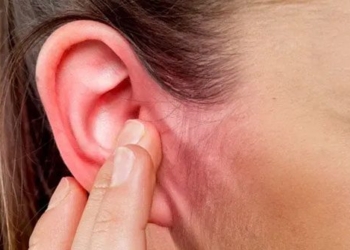Auditory hallucination is the phenomenon of hearing sounds or voices without any observable source or cause.
The sounds or voices that individuals hear can seem very real, but they are not. Patients may perceive auditory hallucinations as coming from their ears, the surface of their body, inside their head, or from anywhere in their surrounding space. These experiences can occur as frequently as daily or just once. Auditory hallucinations are often associated with schizophrenia and other mental disorders, but they can also occur for many other reasons, such as hearing loss, and are not always indicative of a mental disorder. This is the most common type of hallucination.
Auditory hallucinations can be classified into two main types: verbal auditory hallucinations (commonly referred to as voice hallucinations) and non-verbal auditory hallucinations (noise hallucinations).

Auditory hallucinations are often associated with schizophrenia.
Voice hallucinations refer to the phenomenon of hearing voices when no one is speaking. The experience of hearing voices can vary greatly from person to person and even within the same person. They can differ in frequency, sound, content, and familiarity. The voices may come from a single source, such as a television, or from multiple sources. They can be a single voice or multiple voices. These voices may speak directly to the patient, converse with them, or describe events happening around them. The tone of the voices can be positive, negative, or neutral. Sometimes, hearing voices can cause distress or discomfort. They may command the individual to do something that could harm themselves or others. Voice hallucinations are most commonly seen in individuals with schizophrenia and/or post-traumatic stress disorder, but they can also occur in people without any health issues.
Examples include:
- A person with schizophrenia hears a voice in his head saying: “He is a traitor. He wants to harm you. You must kill him before he kills you.” This voice is negative and commands him to do something dangerous.
- A person with schizophrenia hears a voice in his head telling him that he is a savior and must kill bad people.
- A person with depression hears a familiar voice of a friend who committed suicide telling her that she is the cause of his death.
- A person with epilepsy hears ringing or whistling sounds before having a seizure.
- A person with tinnitus hears whistling or hissing sounds continuously in their ear.
- A person who has lost their parents hears their voices when entering the living room.
What causes this type of hallucination?
- Mental disorders: schizophrenia, depression, bipolar disorder (manic-depressive disorder), personality disorders, sleep disorders. Among these, schizophrenia is the most common. 75% of individuals with this condition experience auditory hallucinations.
- Hearing loss: Individuals with hearing loss may hear sounds or voices that are not real as the brain attempts to compensate for the lack of auditory stimulation.
- Substance use: Some substances, such as marijuana, cocaine, etc., affect brain function.
- Severe stress: Severe stress, such as after experiencing a traumatic event. It is especially common to hear the voice of a loved one after they have passed away.
- Neurological conditions: brain tumors, epilepsy, tinnitus, delirium, traumatic brain injury affecting areas of the brain related to sound processing.
A rundown of various visual illusions that trick the brain





















































